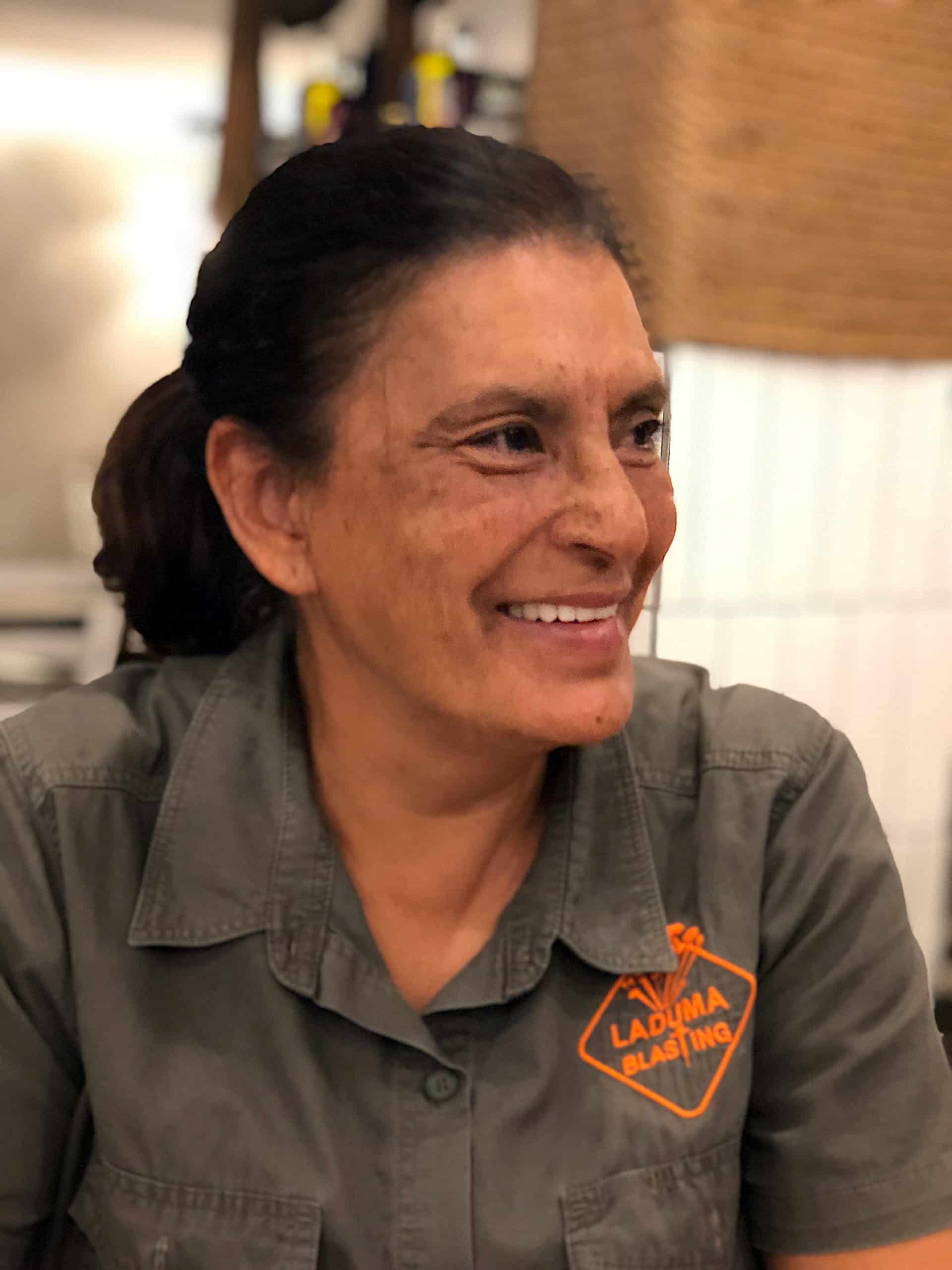Désire De Oliveira, a pioneering Civil Blaster and Managing Director of Laduma Blasting in South Africa, has worked in one of the most male-dominated industries of all – construction and mining. And all she wanted to really do was hone her skills as a French pastry chef.
In her 65 years, Désire De Oliveira has never stopped moving, running her own financial accountancy business for 30 years, raising four kids, qualifying as a French pastry chef, and starting the Seaside Lodge B&B in Salt Rock in South Africa’s KwaZulu-Natal province in 2006.
Seaside Lodge B&B remains consistently booked and was one of the accommodation businesses that survived Covid-19.
She’s also the first woman of color in KwaZulu-Natal to be a certified Opencast blaster (mining) and a certified Civil blaster. To put it simply: blasting is where rock gets blown into pieces with small amounts of explosive – a trickier process than one might think.
“Every accountant will tell you, the smaller the gross profit, the bigger the margin – that’s the business you’re looking for,” De Oliveira says to FORBES AFRICA. So when the owner of Laduma Blasting wanted her to partner in the business, due to her knowledge of its operations after doing its books, she agreed to make it her sole focus for one year.
She intended to return to her first passion – baking – after the year was up.
She put up the capital and he put up the blasting knowledge. In her first six months, she brought in significant business. Eventually, De Oliveira took over the company entirely and decided to get qualified as a blaster, while having a licensed blaster on hand to learn from.
It was not an easy road, as industry professionals told her she would need at least 10 years’ experience to find jobs in the sector. In 2015, she received her Learner Civil blaster, by 2016, her Opencast blaster certificate for mining, and in 2021 she finished her Civil blaster requirements.
And she’s managed to get the jobs they said she could not.
“Though everything I have succeeded at seems a walk in the park, that is because I embrace life for what it is. I have no regrets. Every hardship seems to have been used as a challenge. Looking back now and joining the dots, because of my belligerent attitude to life, I’m a non-conformer, not a follower, am also not a pushover, and certainly not a dreamer. Everything I have done, has been done my way – there’s been no mentors. I also do not carry baggage, none at all, life is too short,” De Oliveira explains.
Three of her family members contracted Covid-19 in December 2020, including herself. Her husband Peter Rutsch died due to Covid-19 in January 2021.
“It was a big shock. I missed him because as much as we didn’t see each other, we were good. He encouraged me. He let me do my thing. He did his thing. Nobody pulled each other back.”
She battled for four months with long Covid. Laduma Blasting was closed for that time too, and she had to pick up the pieces and start work again.
De Oliveira has spent the last 40 years working on average 19 hours a day, 360 days a year, including seeing to the children, cooking and caring for the home.
Home maintenance and childcare is called ‘invisible labor’, and something an Oxfam analysis valued at $10.9 trillion per year globally.
De Oliveira did not have an easy life as a woman of color in apartheid South Africa; facing the double blow of racial discrimination in all sectors including work and patriarchal attitudes, as well as surviving sexual abuse at a young age.
“Like most previously disadvantaged South Africans having lived through apartheid, we came with no capital, were not properly educated, worked hard, but could not command decent salaries – the old adage still prevailed, black people being paid far less than their white counterparts – that’s only starting to change now,” she says.
She thinks every mother in her situation wished for a better education for their children. After the 1994 elections in South Africa, the possibility of a good education started to be a reality, except she and other people did not have the finances to access it.
Now, she has managed to give her children a good education.
“I think I’ve done that my whole life, working on my own and steering my own ship so I don’t live off other people. I’m independent. So, it worked well for me that I didn’t have anything.”
Despite having long Covid and asthma, De Oliveira is preparing to run the Comrades Marathon for the 13th time this year. And she’s even thinking of opening another business.
